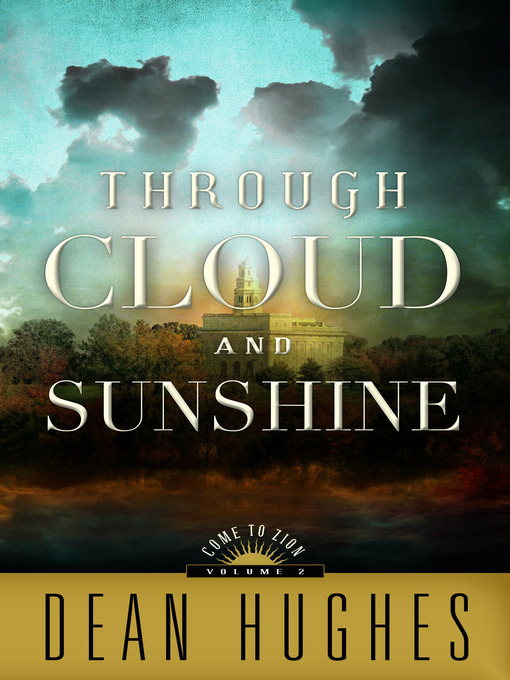In this sequel to The Winds and the Waves, Will and Liz Lewis have settled in Nauvoo after emigrating from England. They experience life with the Saints and struggle to deal with the rigors of life in a new country. They witness crucial events in Church history during the last years of the Prophet Joseph's life. Meanwhile, Jeff and Abby—living in modern-day Nauvoo—learn more about Jeff 's ancestors and face their own set of challenges.
Beloved novelist Dean Hughes vividly depicts real, everyday life in early Nauvoo—the spiritual and emotional challenges as well as the physical challenges. The skillful interweaving of the sto ries of these two couples, separated by five generations and 150 years, provides a unique way to bring Church history to life and show how much we can learn from those who went before us.
Interview with Dean Hughes:
Do you have certain tools you go to for the history part of your books?
Research has become much easier in recent years. There was a time when I sat in a library or archive for many hours, and I still do that at times, but I can find much of what I'm looking for at home now. When I'm starting a new project, I like to go to Curt Bench's store, Benchmark Books, in Salt Lake City. I try to find the seminal works on a subject: especially the general books that give me an overview of the period I want to understand. The bibliographies in those books guide me to others sources, and the nice thing is, I can sit at home and order most of what I want to find, including many works that are out of print.
As I figure out my plot and know more exactly what I need to know, I look for books on nineteenth-century farming techniques or log cabin construction. What's great, though, is that the Internet is replete with sites that zero in on specific information. There was a time when I had to go to LDS Church archives to find materials that are now published online. (The Joseph Smith Papers, both online, and in published form) have been a big help for me, for example. I write on an iMac with a twenty-seven inch screen, and I type my notes instead of taking them by hand. I can juxtapose my notes and the page I'm writing on the same screen, and then check details without much trouble, simply using keywords to find what I'm looking for.
I also find that I Google all sorts of things. If I'm writing a scene that involves an actual person, for instance, such as Eliza R. Smith, I wonder exactly how old she is and instead of looking through books or notes, I Google her name, and spot a bio, which always provides her birthdate. In a few seconds I know exactly how old she was in 1843 (thirty-nine, as a matter of fact). I have to be careful, because web sites are not all of equal quality, and there are mistakes all over the place, but I love to hit a couple of buttons and get instant information. My biggest challenge is that there is more information available than I can possibly read; sooner or later, I have to write the book.
What inspires the ideas for your fiction?
People often ask me where I get my ideas, but I hardly know what to say. For some reason that's what my brain does pretty much all day. It grabs on to some little clue and says, "Hey, Dean, you could write about that some time." I guess it's a habit of mind from writing for thirty-five years (actually, that's publishing for thirty-five years; I've been writing much longer.) And yet, it seems as though my brain has always been that way. Music, books, movies, the evening news, a conversation overheard, a certain scene or mood or desire: all sorts of things kick off ideas, and then my mind starts turning the idea into a story.

